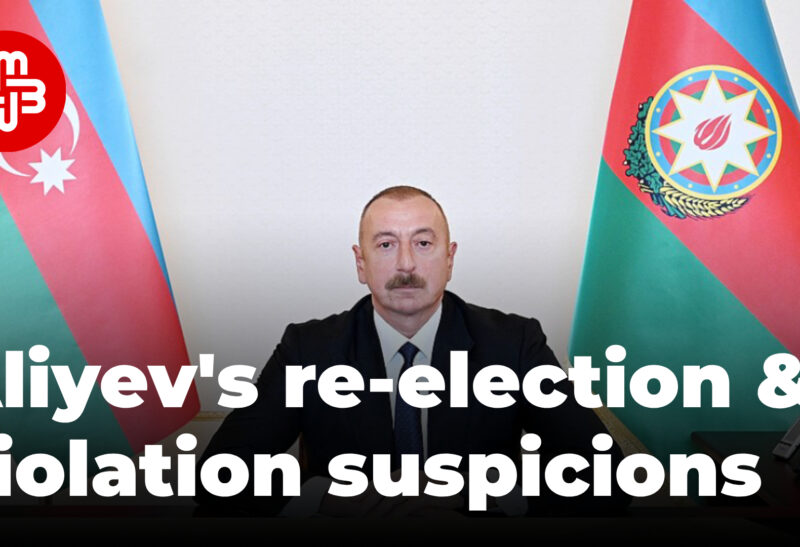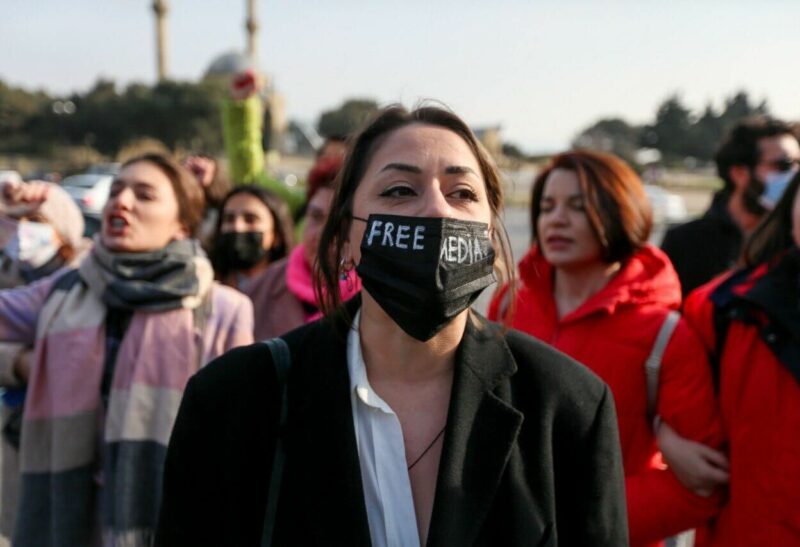
The systemic crisis continues to deepen in Azerbaijan; government stagnation, a falling national currency, the collapse of the banking system, inflation, the decline of the reserves of the Central Bank and an increase in unemployment is just partial evidence of this.
The list could go on.
But it would seem that one of the most important indicators of the ever – expanding boundaries of the crisis is the increased activity of protesters. Last month alone, spontaneous socio-economic protests were held in different parts of the country. Citizens are dissatisfied with the Baku – Sumqayit, Baku – Shamakhi, Barda and Saatli highways remaining closed. Speeches in Goychay and Ganja were made to this effect.
Surprisingly, in none of these cases did the government use force to disperse these protesters, which is highly uncharacteristic of authoritarian regimes. It does show, however, that there is a certain feeling of confidence and anger in society which could boil over at any moment. The government is aware of this. If force had been used, it could have brought about a chain reaction that would have produced demonstrations elsewhere in the country.
President Ilham Aliyev has promised much – needed reforms since the beginning of 2015. However, these have been indefinitely delayed. During this time, the government’s actions have not been proportionate to the extent of the crisis in the country, and have led to a deterioration of the situation. The masses are impoverished, the people’s standard of living as a whole has decreased. These facts speak for themselves.
The authorities’ plan for dealing with this situation is to constantly guide the people’s attention away from the crisis and towards the prospect of rising oil prices.
Aliyev has tried to protect his regime by only instituting half – baked reforms, or none at all. The regime hopes that black gold’s prices will soar at the OPEC summit on November 30, but this is unlikely.
Other countries are aware of what such economic conditions can mean for those in power. Russia’s former economic development minister and the current chairman of Sberbank, Herman Gref, says that the country is approaching unknown territory that may have disastrous consequences should the economy not get back on its feet.
The chairman of Sberbank called the Russian economy a “mono – resource” economy, and noted that in the past, the emergence from such situations has been brought about not by reform in Russia but by sweeping change – revolution, civil war, dependence on foreign countries.
If Russia is a mono – resource economy, Azerbaijan is a ‘super – mono – resource’ state, and it seems that disintegration could come about much quicker than one would think. And judging by the president’s actions and economic indicators, we are facing the prospect of the same changes as mentioned by Gref: revolution, civil war or dependence on foreign states.
The president has promised large – scale ‘revolutions’ from the top. That is, reforms. But for now, it those seem a long time in coming, and it is more likely that Azerbaijan will instead simply become heavily dependent on external support and influence. In 2014, 7% of the GDP was foreign debt. It has now surpassed 30%, and continues to grow.
If the President continues to delay these reforms from the top, revolution from above could turn into a revolution from the bottom.



